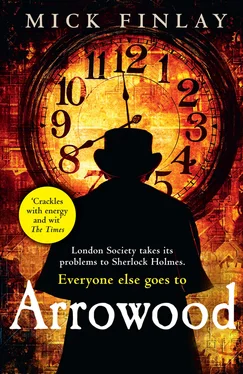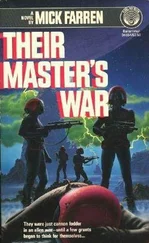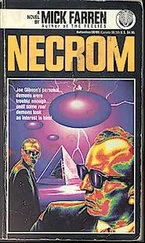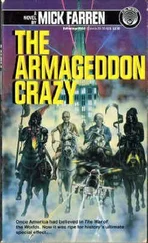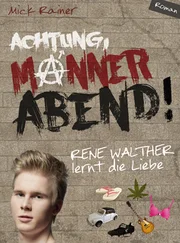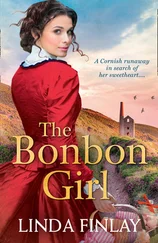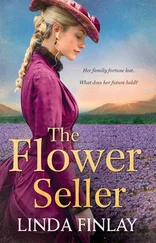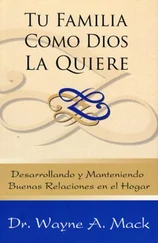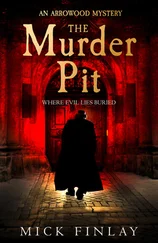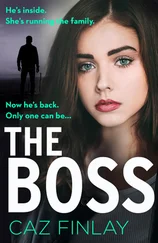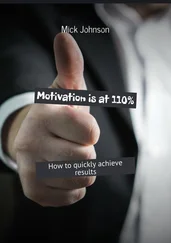Ettie watched me in despair.
‘One moment, Norman,’ she said, as I reached the door. ‘Did you get muffins as I asked?’
‘I’m sorry. I had my hands full.’
‘Quite so.’
Her mouth turned down in sadness: Ettie enjoyed her food just as much as the guvnor.
‘You must ask Mrs Barnett to come to a meeting,’ she said. ‘Reverend Hebden is always looking for new recruits. She’d find it enriching, I’m sure. I shall tell you the time of the next one.’
‘Thank you, Ettie.’
Her eyes narrowed as a queer noise came from her stomach. Next moment, a light flush came to her cheeks.
‘That’s arranged, then,’ she said, picking up her darning again. We both pretended we hadn’t heard the gurgle in her innards.
Nolan lived in two rooms of a lodging house on Cable Street. He was an old friend of mine from Bermondsey days. His business had always been just the other side of the law, and we often went to him if we wanted to know about things as were happening in the Irish parts of town. A few days ago he’d come out from fourteen moons’ stir for the theft of an overcoat from a Chinaman on the Mile End Road. Now he was back in his old life, fencing carriage clocks and cooking pots to the good women of Whitechapel.
‘You ain’t looking so good,’ he said, as we sat at the table. His wife Mary, his mother, and two cousins had been dispatched to the front room to allow our conference. Despite the sunshine outside, the back room was cold, the light from the window cut out by a taller building not five yards behind. He wore broken spectacles on his nose, one of the arms being a chewed pencil tied on with a thread of hairy string.
‘Apologies for not visiting you in the nick, mate,’ I said. ‘I’ve an aversion to criminals.’
‘Forgiven, Norman. How’s the old boy?’
‘Suffering after a night in the Hog.’
He laughed and slapped his thigh.
‘He never could absorb it. Weak body, that’s his problem. Weak stomach. Now, me old mate, what is it you’re after this time?’
‘You heard anything about a gang of Irish or Americans? Thieving from the big houses in the West End?’
He got up and closed the door. When he came back his smile was gone.
‘I’d leave that one alone, my friend. The two of you don’t want to be asking after them lot.’
‘It’s connected to a case.’
‘Well it might be, but you don’t want anything to do with them. Stay well away.’
‘The guvnor won’t do that. A girl’s been killed. He’s taken it personal. It seems as this gang is connected to—’
‘Don’t tell me any more!’ he barked, his spectacles falling from his face. ‘Did I say I wanted to know?’
I shook my head.
‘Right, here it is.’ He leaned over and collected his eyeglasses from the wooden floor. ‘Those lot are Fenians. You remember them?’
I nodded. Who in the country didn’t remember the Fenians? Ten years ago the city was in a panic for bombs exploding all over the shop. There were stories every day of new targets and plots foiled by the police. Explosives had been planted in the underground railway, London Bridge, even the Houses of Parliament. People were so scared they stopped using the trains. The guvnor himself had written many a story for the paper on the hunt for the skirmishers and the Irish Americans behind it all. They’d brought the fight for Ireland to the heart of England, and all of us who lived here knew it.
‘But I thought they’d given up?’
‘Most of them did, but a few of them went their own way, like. Them as still believe the only thing the British will listen to is war. I heard they were connected to the burglaries in some way. And that’s all I heard.’
‘Names?’
‘I only ever heard one name. Fellow called Paddler Bill. One of the Invincibles, they say. You remember them?’
‘The assassins?’
‘That’s them. He was one that got away, never even named at the trial. Big, red-haired fellow – not as I ever seen him myself. They say he carries the executions of those men with him still. That’s why he keeps up the fight. Killed his brother for informing, so they say. Killed him in a sweet factory. Boiled him up in toffee.’
I shivered.
‘Christ, Nolan. I don’t like this case.’
‘These are people you don’t want to anger,’ he said. ‘Stay well away.’
He watched me as I thought about it, as I wondered if I could persuade the guvnor the case was too much for us. But I knew that was a fantasy: once he gave his word he’d never give up.
‘Why housebreaking?’ I asked at last. ‘What’s that to do with the campaign?’
‘For the money, I shouldn’t wonder. Costs money to fight a war.’
‘And you don’t know any other names?’
‘Don’t know nothing about the others. And before you say anything, I ain’t going to ask around neither. Those lot ain’t afraid of tying a person up and dropping him in the river on a cold night and that’s a fact.’
‘I wouldn’t ask if it wasn’t important, Nolan.’
He shook his head, jamming his hands in his pockets. A cat appeared from behind the oven and padded up to him, rubbing its side on his trouser leg. He kicked it away.
‘Mary’s Irish, too, ain’t she?’ I asked.
‘She was born here. Her mother and father, they come over after the famine, but they don’t know nothing about these Fenians. Most of them lot’s American.’
‘What does she think of them?’
‘Her cousin Kate’s the one goes to all the land reform meetings. But the whole lot of them’s for a free Ireland. Father was too, before he croaked.’
‘How couldn’t they be, living with you?’
More than once, Nolan had bent my ear on self-government. He’d come over himself during the depression twenty years ago; his brother who stayed behind was thrown into Tralee gaol for helping tenant farmers resist eviction. The more he’d told me about what was happening over in Ireland the more ashamed I was at what my people were doing. The guvnor was with Nolan on this, and that was one of the reasons they’d grown to have such respect for each other.
‘A lot of yours see us as no more than filth,’ said Nolan, nodding. ‘There are plenty of law-abiding Irish round here, mate. Not me, of course, but plenty of others, yet any crime that’s done, they says it’s us. If there’s work we’re the last to get taken on. Our people got good cause to take against you. But listen, Norman. I’ll be for the liberation of my country till I die, but I don’t go along with the bombs. Never have done.’
He crossed his arms and shook his head, and from the look on his face I could see he was about to start up on some more serious talk. But just then the door squeaked open and his Mary’s head appeared. ‘Potboy’s here, lads,’ she said.
Nolan made a noise like he’d been holding his breath. He smiled.
‘You want a drop o’ porter with me?’ he asked.
I had a bit of porter with him and Mary, and then she went out for whelks. Still I couldn’t persuade him to make any enquiries. He was frightened of these Fenians. And Nolan wasn’t usually frightened of anything.
Chapter Eight
There had been an accident outside The Fontaine when we arrived that evening. A horse had fallen over and died, pulling its carriage onto its side. A lady was sitting on a step howling, blood all over her face and a posy of flowers in her hand, while the cabman tried to uncouple the carriage from the horse’s corpse. A crowd had gathered to poke at the horse and stare at the howling woman. The guvnor bent down to her as we passed.
‘Are you hurt, miss?’ he asked, holding out his handkerchief. ‘Here, take this.’
Her crying calmed as she peered through her teary eyes at the guvnor, then at the tattered red cloth. Seeing the tobacco stains and the dangling threads crusted with who knows what, she shuddered and turned away.
Читать дальше
